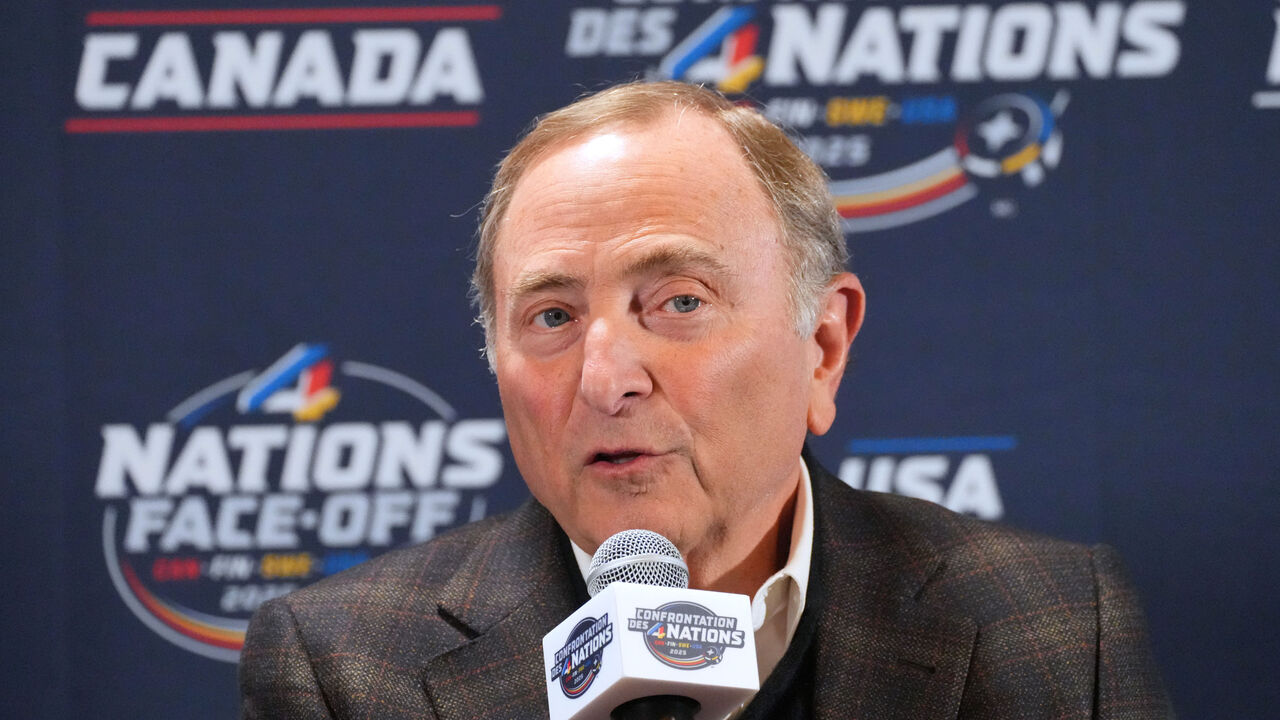NHL bucks recent trends by extending Rogers' TV stranglehold
As the original Canadian NHL broadcast deal that shook the world nears its conclusion, the consensus in the television industry was that things would be different next time.
Where Rogers had locked up the entire national package a dozen years ago, shoving TSN and CBC abruptly out of the production picture, now the landscape is clouded by countless competitors: big streaming behemoths such as Amazon, Apple, and Netflix, but also smaller digital players that have dabbled in live-sports rights.
It was assumed that commissioner Gary Bettman and the league would follow the lead of the mammoth NFL and NBA media deals in the United States, which brought in new partners to secure a higher total dollar figure overall. Following that format would spread national hockey coverage over more outlets in Canada.
Or, not.
Bettman was back in Toronto on Wednesday to announce yet another 12-year deal with Rogers, at an $11-billion (Canadian) cost that is more than double the last Canadian broadcast contract. The arrangement, which begins after the 2025-26 NHL season, makes for some obvious conclusions - and raises a few big questions.
The primary conclusion is that Rogers could not be more in on sports. In a fracturing television landscape, with cable subscribers decreasing, the Canadian telecom giant is betting on sports content to keep customers engaged with its services. It spent almost $5 billion (Canadian) last year to become the majority owner of Maple Leaf Sports and Entertainment, the company that owns the Toronto Maple Leafs, Toronto Raptors and other sports properties, and has now spent double that to be the NHL's primary partner in Canada until long after Connor McDavid and Auston Matthews are no longer the faces of the league. Wherever the TV audience for NHL hockey goes, Rogers and Sportsnet will control the ability to broadcast it.
Next, the questions. Why did the NHL stick with one main partner in Canada, and a traditional broadcaster at that? Is this an indication that global companies such as Apple and Netflix didn't have much interest in NHL hockey in one (relatively small) country? Or is it a case of Rogers writing a big enough check to stave off potential competitors? That was, after all, what Rogers infamously did in 2013, offering Bettman a price that squeezed out longtime partners TSN and CBC.

Meanwhile, TSN, owned by Rogers' telecommunications rival Bell, finds itself on the outside again. It is the stuff of industry lore that, a dozen years ago, heated meetings at the Bell offices led to TSN recommitting to its shrunken NHL coverage and locking down popular voices such as Bob McKenzie and James Duthie with new contracts. Somewhat amazingly, TSN has continued to rival Sportsnet for things like trade-deadline coverage even though it only holds regional rights for the Leafs, Ottawa Senators, Montreal Canadiens and Winnipeg Jets.
But with Bell now exiting MLSE - that sale process is ongoing - and seemingly out of the national NHL picture until 2038, how much longer will it want to be involved in sports broadcasting? TSN is already heavily promoting next year's soccer World Cup, but other than NFL rights and some more niche sports such as Formula 1, tennis, and golf, it hasn't kept much away from Rogers and Sportsnet. (One notable exception is the CFL, which has been propped up by the fact TSN needs something to broadcast in the summer months.)
It might sound unthinkable since TSN was the original all-sports station in Canada, but are we closer to a world without it than previously thought? If nothing else, Sportsnet, once the upstart newcomer, has much more control over the Canadian sports broadcasting picture.
The question that is most difficult to answer is what any of this might look like five, eight, or 10 years from now. When the first big Rogers deal was announced, there was great fanfare about all the money the company was investing in new technology and talent and a whole new way of delivering NHL content. A decade later, much of that talent has left, signature shows such as "Hometown Hockey" have been replaced, and the Monday-night NHL games have been resold to Amazon's Prime Video service.
(That Monday-night package could continue in the next deal as Rogers has the right to resell a weekly game night as an exclusive to a partner, but because that won't begin until 2026-27, those details remain unknown. Rogers can also repackage the French-language rights, as it did with the current deal, which were bought by TVA.)
The one enduring asset over the first Rogers deal has been "Hockey Night in Canada," the Saturday-night staple that began on CBC television in 1952. Rogers has effectively borrowed the CBC's airwaves since 2014 for HNIC and Stanley Cup playoff broadcasts because Rogers doesn't own a linear network like Bell's CTV or Corus' Global. Will that relationship continue? Rogers Sports and Media president Colette Watson said negotiations would take place to see if the partnership continues to make sense. But political questions are already looming about the funding of the public broadcaster, and 12 years is a long time.
Whatever happens, Rogers will be the conduit for the NHL's national rights in Canada until almost 2040. Evidently, the company was willing to pay whatever it took to make that happen. Again.
Scott Stinson is a contributing writer for theScore.